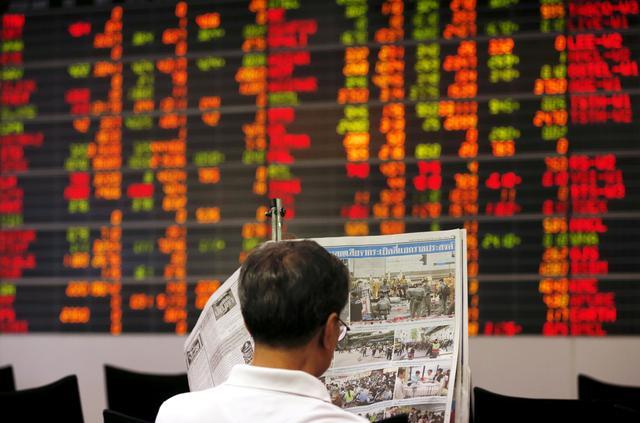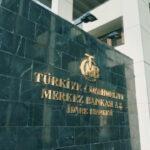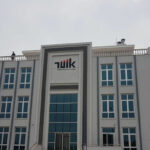Some 31 buildings collapsed and at least two people were killed and 140 people were injured after a magnitude 5.6 earthquake jolted Malatya yesterday, weeks after two massive tremors shook the region, according to the Disaster and Emergency Management Presidency (AFAD).
The two major earthquakes which hit Turkey on February 6 caused about USD 34.2bn in direct physical damage, but total reconstruction and recovery costs facing the country could be twice as high, according to the World Bank. Reuters reported that World Bank Country Director for Turkey Humberto Lopez said the earthquakes would also shave at least half a percentage point off Turkey’s forecast gross domestic product growth of 3.5% to 4.0% in 2023. Lopez stated the initial rapid damage assessment for Turkey of USD 34.2bn was equivalent to about 4% of its economic output in 2021, but that did not include indirect or secondary impacts on the growth of its economy or the most recent earthquake a week ago. “Our experience is that reconstruction needs can run as high as two to three times the estimated direct physical damage,” he added.
The Central Bank has ‘limited room’ to intervene in the economic effects of the quakes as the monetary policy has been quite easy for a while, according to Ulrich Leuchtmann, head of FX Research at Commerzbank AG. Leuchtmann told daily EKONOMI that a 50-basis point rate cut which remained below the expectation, is a sign of that limited room. He also stated that the easy monetary policy stance of the Central Bank is insufficient to curb inflation and restricts the skills to cope with external shocks like an earthquake. Leuchtmann, who also expects that the fiscal policy will be eased, said the relatively low public debt level of Turkey creates room for the government towards expenditures to some extent, but this will raise inflation further. Stressing that a major part of the additional support for the Turkish economy would be financed either with higher taxes or additional borrowing from savers, Leuchtmann added: “Turkey’s record to fight against inflation is obvious. The Central Bank’s ability to support the economy is limited in this challenging period.”
The Turkey Wealth Fund (TVF) will channel cash into Borsa Istanbul via exchange-traded funds (ETFs) in an open-ended attempt to keep the equities market from falling, according to Bloomberg News. The fund will initially allocate at least USD 1bn to ETFs that run by a state bank, according to people familiar with the matter. The plan is to use ETFs currently run by Ziraat Portfoy, the asset-management arm of state lender T.C. Ziraat Bankasi A.S., the people said, asking not to be identified because of the sensitivity of the matter. The funds track the performance of various indices related to Borsa Istanbul.
Russia’s Moscow Exchange (MOEX) announced yesterday that it will start to trade the Turkish lira and Hong Kong dollar as of March 1. It said the launch of new contracts for the Turkish lira and Hong Kong dollar stemmed from a growing interest from clients in trading both currencies. Investors will have access to contracts expiring in June, September, and December 2023 and March 2024 for the Turkish lira and Hong Kong dollar futures. Vladimir Yarovoy, the exchange’s general manager, previously said that the demand in MOEX for the Turkish lira had risen seventeen-fold.
DAILY AGENDA
>> The Turkish economy grew by 5.6% In 2022, according to the Turkish Statistical Institute (TutkStat). It also grew by 3.5% In the fourth quarter of the last year.
>> The servicess producer price Index rose by 82.64% In January-year-over-year, according to TurkStat. The Index was up by 15.57% on a monthly basis.
Meanwhile…
>> Turkey’s foreign trade deficit jumped 38.4% to USD 14.24bn in January, year-over-year, according to TurkStat. The country’s imports soared 20.7% to USD 33.6bn in the same period, hitting an all-time high. Exports meanwhile rose by 10.3% to USD 19.36bn in this period.
>> The economic confidence index declined by 0.3% to 99.1 in February, compared to the previous month, according to TurkStat.
>> The domestic major appliance sales increased by 27% TO 712,684 units, while major appliance exports fell by 10% to 1.69 million units in January, compared to the same month last year, according to the White Goods Manufacturers’ Association of Turkey (TURKBESD).
>> The net profit of Global Yatirim Holding’s subsidiary Naturelgaz, which operates in the off-grid natural gas industry, increased from TRY 26.1m to TRY 767.3m in 2022, compared to the previous year. the company’s gross profit jumped 609% to TRY 971.9m in the same period.
READ A SELECTED ARTICLE FROM OUR MAGAZINE:
>> Mortality statistics rise by tenfold due to COVID-19
The Turkish Statistical Institute (TurkStat) started to release the death statistics which stopped during the COVID-19 period. The crude mortality rate per 1,000 people, which stood at 5.3 in 2019, rose to 6.1 in the pandemic year of 2020 and increased to 6.7 in 2021, according to TurkStat.










